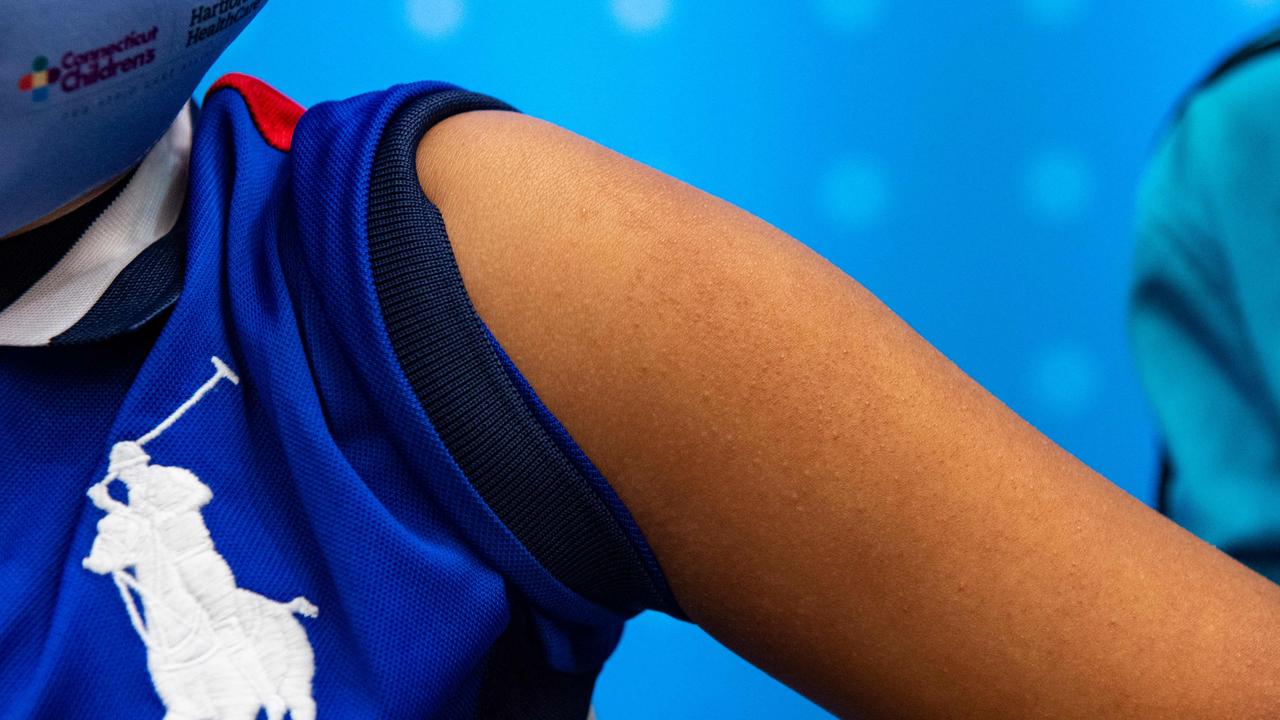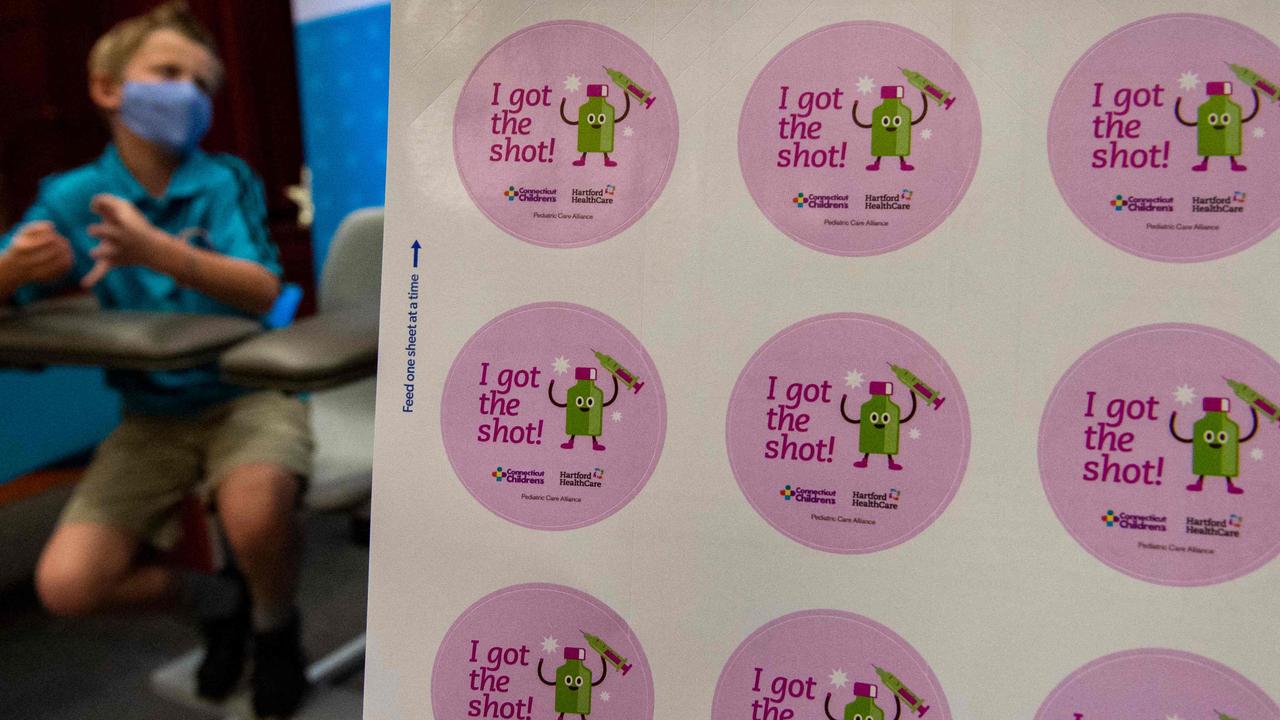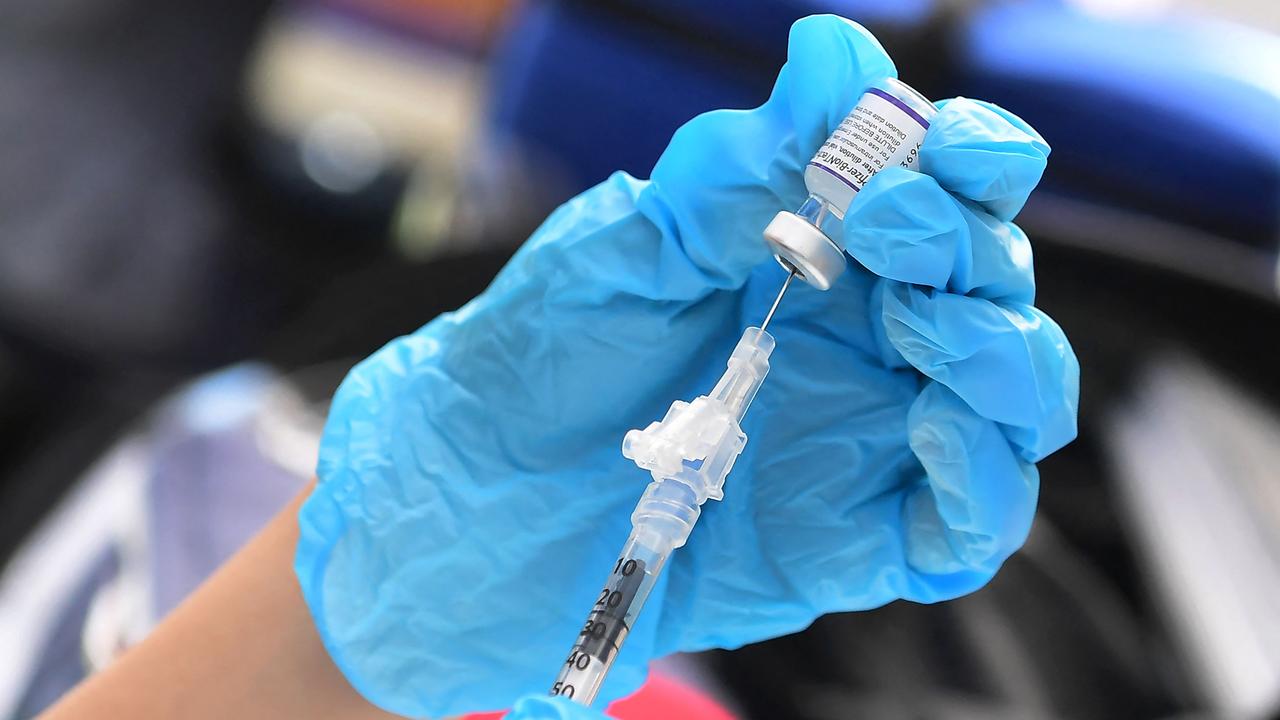US Centers for Disease Control and Prevention approves Pfizer vaccine for use in children
Children in the United States will begin receiving Covid vaccinations this week after authorities provided the final approval needed.

Children aged five to 11 years old will be able to get vaccinated against Covid as early as this week after the United States’ top public health agency voted unanimously to approve the Pfizer jab.
The Centers for Disease Control and Prevention (CDC)’s endorsement was the last step in the process required for the vaccine to be provided to children in the US, and raises hopes that Pfizer will soon be available to Australian children as well.
In announcing the step, the CDC noted that Covid cases in children can result in “hospitalisations, deaths, MIS-C (inflammatory syndromes) and long-term complications, such as “long COVID,” in which symptoms can linger for months”.
It said the Delta variant had seen a surge in cases among children, with the number of hospitalisations among children and adolescents increasing five-fold during a six-week period between late June and mid-August.
“Vaccination was nearly 91 percent effective in preventing Covid-19 among children aged 5-11 years,” the CDC said.
“In clinical trials, vaccine side effects were mild, self-limiting, and similar to those seen in adults and with other vaccines recommended for children. The most common side effect was a sore arm.”
The CDC decision comes after the Food and Drug Administration voted in favour of giving children two doses of the Pfizer vaccine at about one-third of the adult amount.

The head of Australia’s Therapeutic Goods Association (TGA) John Skerritt told reporters last week the Pfizer application for use in children was not yet complete in Australia.
“We’re expecting to get a full application in the coming week or two,” Prof Skerritt said.
“It will take a few weeks but I would hope that we get there by the end of November - but it really does depend on when we get the full application from Pfizer, the complete version, and if there’s any issues.”
In the US, the distribution of vaccines for children will begin this week, with plans to scale up to full capacity by next week.
CDC director Rochelle P Walensky said it was another important step forward in the nation’s fight against Covid-19.
“We know millions of parents are eager to get their children vaccinated and with this decision, we now have recommended that about 28 million children receive a COVID-19 vaccine,” she said in a statement.
“As a mom, I encourage parents with questions to talk to their pediatrician, school nurse or local pharmacist to learn more about the vaccine and the importance of getting their children vaccinated.”
Ahead of its decision on Tuesday (local time), the CDC convened a panel of independent scientists to review the available data on the status of the outbreak in children, the effectiveness of Pfizer’s vaccine, and its possible side effects during a day of live-streamed discussions.

The main concern was the risk of myocarditis, an inflammation of the heart muscle, detected in adolescents and young adults (mostly males) after vaccination with the Pfizer or Moderna shots.
Health authorities have confirmed nearly 880 cases in people under 30 years of age, of which approximately 830 required hospitalisation.
Nine deaths are suspected to have been related to myocarditis after the vaccine. But of six cases so far reviewed, vaccine-related myocarditis was ultimately not identified “as the cause of death,” pediatric cardiologist Dr Matthew Oster said in a presentation.
“I’m much more worried about what would happen to their child if they get Covid, for patients who don’t have heart disease, than I am if they were to get this vaccine,” he added.
There have been more than 1.9 million cases of Covid-19 among five- to 11-year-olds in the United States, and more than 8,300 hospitalisations, more than 2,300 cases of MIS-C (pediatric multisystem inflammatory syndrome), and about 100 deaths.
The expected benefits of vaccinating children also include fewer school closures, and a possible reduction in transmission of the epidemic into the general population.
“If I had a grandchild, I would certainly get that grandchild vaccinated as soon as possible,” said Beth Bell, an infectious disease specialist and committee member.
“We have excellent evidence of efficacy and safety. We have a favourable risk benefit analysis.”
- with AFP




